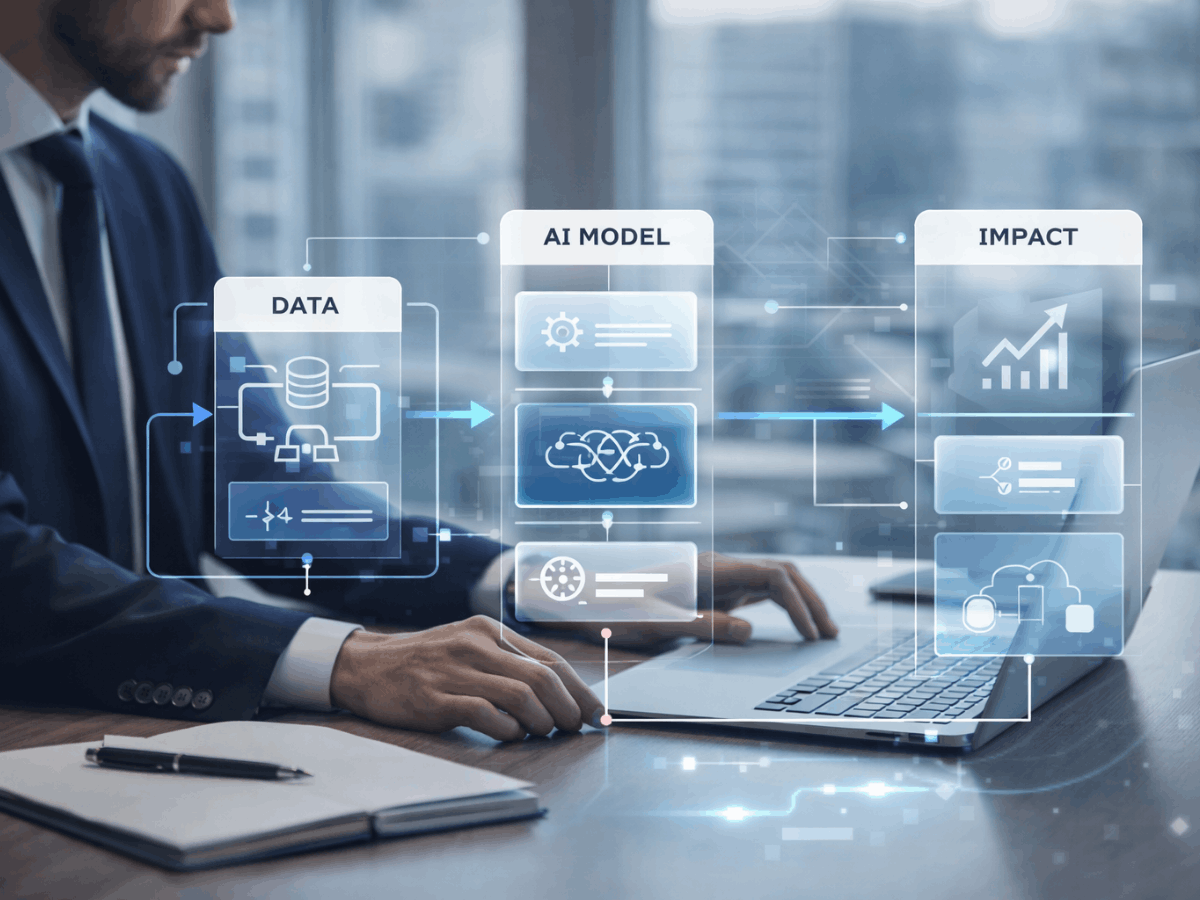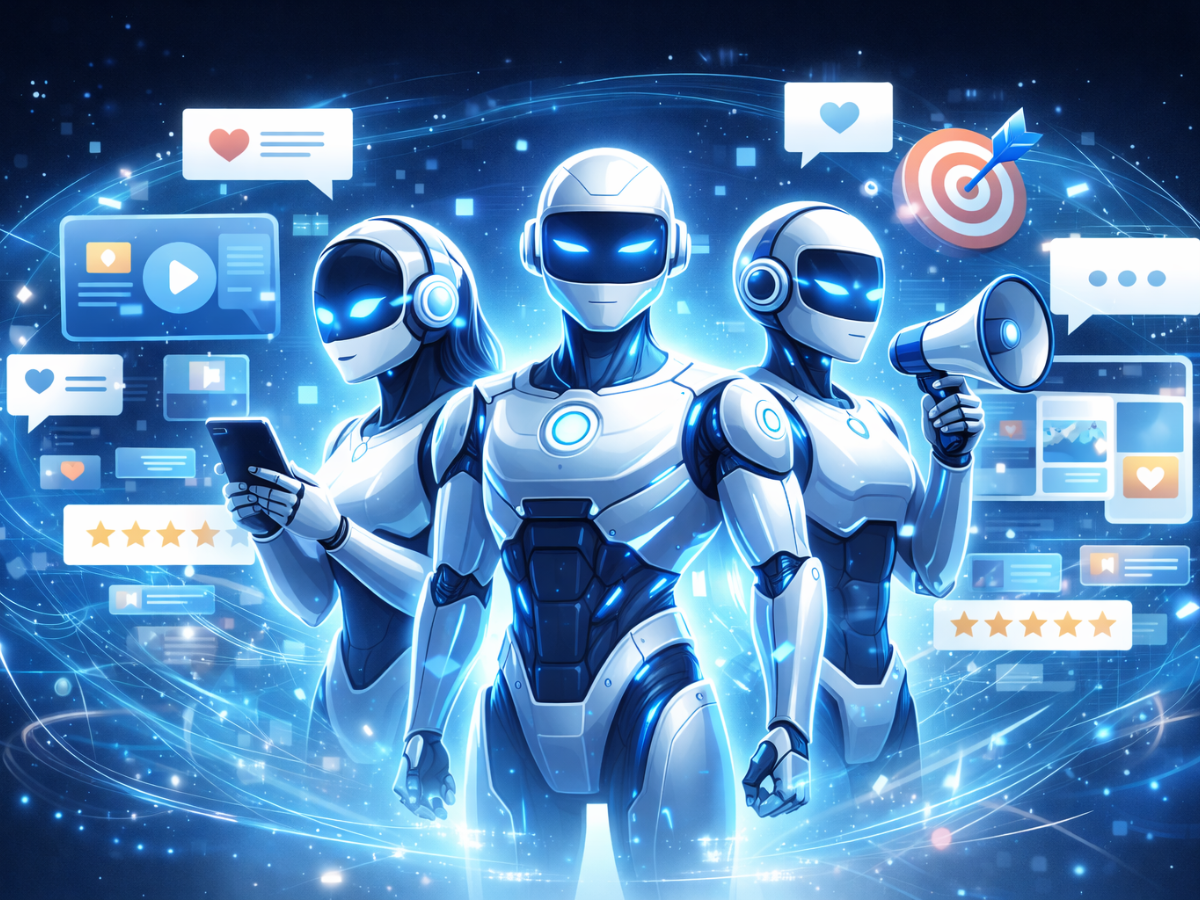Best AI Marketing Tools for CRM To Level Up Your Outreach


CRMs are great for keeping your contacts organized—but that’s just the baseline. If you’re still manually sorting leads, chasing cold prospects, or writing the same email over and over, it’s time for an upgrade.
AI marketing tools are changing the game. They work behind the scenes to score leads, automate outreach, and personalize messages—so your CRM actually helps close the deal, not just track it. In this guide, we’re breaking down the best AI tools built to supercharge your CRM and seriously level up your outreach.
Let’s get into it.
Why AI + CRM Is Your New Secret Weapon
A CRM is only as good as the data and effort you put into it—but AI changes the equation. Instead of manually sorting leads or writing dozens of follow-ups, AI-powered CRM systems help you move faster, work smarter, and connect more meaningfully across multiple channels.
Here’s why this combo matters:
- Predictive power that saves you time: Using machine learning and predictive analytics, AI tools can analyze customer data and track customer interactions to identify high-value prospects. No more guesswork, just smart, data-driven decision making that helps sales teams prioritize leads based on real intent and customer behavior.
- Hyper-personalization at scale: From dynamic email marketing campaigns to timely social media posts, AI-powered automation allows for timely and relevant communication that aligns with each touchpoint in the customer journey. The result? Better customer engagement and increased customer retention.
- Built-in efficiency boost: AI doesn’t just support, you can automate routine tasks like sales forecasting, lead scoring, segmenting audiences, and even responding to customer inquiries with AI-powered chatbots. These tools lighten the load on your team while preserving consistency in tone, speed, and brand voice.
The result? Smarter workflows, enhanced customer engagement, and more time to focus on strategic work like marketing effectiveness or refining your paid advertising strategies across platforms like Google Ads.
To see how much AI is already reshaping marketing behind the scenes, this breakdown of AI’s expanding role in marketing highlights just how deeply it’s influencing strategies, tools, and results across every stage of the funnel.
Top 5 AI Marketing Tools for CRM
1. HubSpot + AI Assistant

HubSpot’s built-in AI tools streamline email creation, automate follow-ups, and prioritize leads—all from within its powerful CRM. The AI assistant works across marketing, sales, and service hubs.
Top 3 Features:
- AI Email Writer: Auto-generates and personalizes outreach content.
- Predictive Lead Scoring: Ranks contacts by likelihood to convert.
- Workflow Automation: Triggers campaigns based on behavior.
What sets it apart: Unified platform with AI baked into every step of the customer journey.
Best for: Growing teams looking for an all-in-one CRM and marketing stack.
2. Salesforce Einstein

Einstein brings deep AI functionality into the Salesforce ecosystem, helping sales and marketing teams make smarter decisions without switching tools.
Top 3 Features:
- Lead & Opportunity Scoring: Forecasts which leads are worth chasing.
- Einstein Bots: Engages site visitors and collects data for your CRM.
- Automated Insights: Highlights what’s working (and what’s not) in your campaigns.
What sets it apart: Native AI fully embedded in Salesforce—no add-ons required.
Best for: Enterprise teams already using Salesforce for customer data.
3. Zoho CRM with Zia AI

Zia is Zoho’s built-in AI assistant, designed to help users spot trends, clean data, and personalize outreach—all without needing extra tools or integrations.
Top 3 Features:
- Anomaly Detection: Flags unexpected drops or spikes in activity.
- Lead Prediction: Forecasts deal closures based on patterns.
- Voice Commands: Navigate your CRM with simple spoken instructions.
What sets it apart: Powerful features at a lower price point than competitors.
Best for: Budget-conscious teams that still want smart automation.
4. Drift

Drift specializes in conversational AI, using chatbots to qualify leads in real time and automatically sync them to your CRM—so reps only talk to the right people.
Top 3 Features:
- AI Chatbots: Engage and route visitors based on behavior.
- Playbooks: Prebuilt logic flows to personalize outreach.
- CRM Integrations: Seamless sync with HubSpot, Salesforce, and more.
What sets it apart: Focuses entirely on conversation-driven conversions.
Best for: B2B teams focused on pipeline acceleration via live chat.
5. Seventh Sense

Seventh Sense optimizes email send times for each contact using behavioral data—so your messages hit inboxes at the right moment, every time.
Top 3 Features:
- Send Time Optimization: Personalizes timing for each recipient.
- HubSpot & Marketo Integration: Fits easily into existing workflows.
- Engagement Analytics: Tracks opens, clicks, and fatigue levels.
What sets it apart: Specializes in send-time AI for maximum email visibility.
Best for: Email-heavy teams looking to boost engagement rates with minimal effort.
How to Pick Your Perfect AI-CRM Combo
Not every AI tool fits every team—and with so many options, it’s easy to get overwhelmed. Before you commit, ask the right questions to make sure your AI marketing tool actually works with your CRM and your workflow.
- Integration Ease: Is it a native integration or will you need dev help? Tools with built-in CRM support (like HubSpot + Seventh Sense) are easier to set up and maintain. If it’s API-only, make sure your team has the resources to manage it.
- Feature Fit: What problem are you solving? If you're focused on lead qualification, look for predictive scoring. Need help with outreach? Prioritize content generation or chatbot features. Don’t pay for features you won’t use.
- Budget & Scale: Some AI tools have generous free tiers. Others only make sense at enterprise scale. Map your current needs and future growth—so you're not stuck switching tools six months in.
- Security & Compliance: You’re handling customer data. Make sure your tool plays by the rules. Look for GDPR, SOC 2, or HIPAA compliance depending on your industry, and check how the tool stores and processes CRM data.
The right AI-CRM combo should feel like a teammate—not another platform you have to babysit. When integrated properly, it helps you move faster, personalize smarter, and stay ahead of customer needs without added complexity.
For more insights on how AI is shaping modern marketing, explore the latest trends and strategies on the Aiken House marketing blog. It’s a solid resource if you’re looking to sharpen your approach and stay current with what’s working now.
Quick-Start Integration Guide
Once you’ve picked your AI tool, the next step is connecting it to your CRM software without breaking anything or anyone’s brain. A strong integration can unlock ai-driven automation, improve your marketing strategies, and simplify the way you manage customer relationships.
Here’s how to get started fast:
1. Prep Your CRM Data
Before introducing AI-powered tools into your stack, make sure your customer relationship management data is clean. Remove duplicates, fix formatting, and fill in missing details. Since artificial intelligence learns from historical data, clean inputs lead to better customer insights and more accurate sentiment analysis.
2. Install and Configure the Integration
Use built-in integrations when possible. Most CRM platforms and marketing software now support popular AI features with just a few steps. If you're using an API-based tool, follow the setup instructions carefully or bring in your developer. Start with a test group to avoid disrupting existing marketing workflows.
3. Set Clear KPIs
Decide what success looks like. Are you aiming to improve customer sentiment, increase sales automation, or drive more engagement with your marketing materials? Define your goals early so your team can gather actionable insights and track real ROI using data analytics and ai-driven insights.
4. Train Your Team
Even the most advanced ai CRM systems won’t help if your team doesn’t know how to use them. Provide a walkthrough that shows how to launch automated content creation, read data analysis reports, and use tools like an AI-powered writing assistant or AI sales assistant. This builds confidence and makes your marketing efforts more effective.
5. Monitor + Tweak
AI tools require ongoing attention. Keep an eye on performance, optimize for better customer engagement, and refine how you are analyzing customer interactions. Over time, you can automate more repetitive tasks, personalize messaging through natural language processing, and take advantage of robust AI capabilities. Even starting with a free version can bring measurable improvements.
The best AI integrations improve as your workflows evolve. Connecting your CRM with generative AI and other smart features allows you to streamline the sales process, strengthen customer relationships, and boost your social media management efforts. Start small, stay consistent, and scale as you grow.
Smarter Outreach Starts with the Right AI-CRM Stack
The right AI marketing tool doesn’t just add features to your CRM—it transforms how you work. You’ll spend less time guessing and more time connecting with the right people, at the right moment, with the right message.
Whether you need predictive lead scoring, automated chat, or email optimization, there’s a tool out there built to fit your workflow and your budget. Start by cleaning up your data, pick one tool that solves your biggest bottleneck, and build from there.
If you're looking for expert guidance to help tie everything together, these top fractional CMO services for 2025 offer strategic support for brands that want to scale smarter using AI, automation, and modern CRM platforms.
Outreach doesn’t have to feel like a grind. With the right AI-CRM combo, it can finally feel smart, strategic, and scalable.








